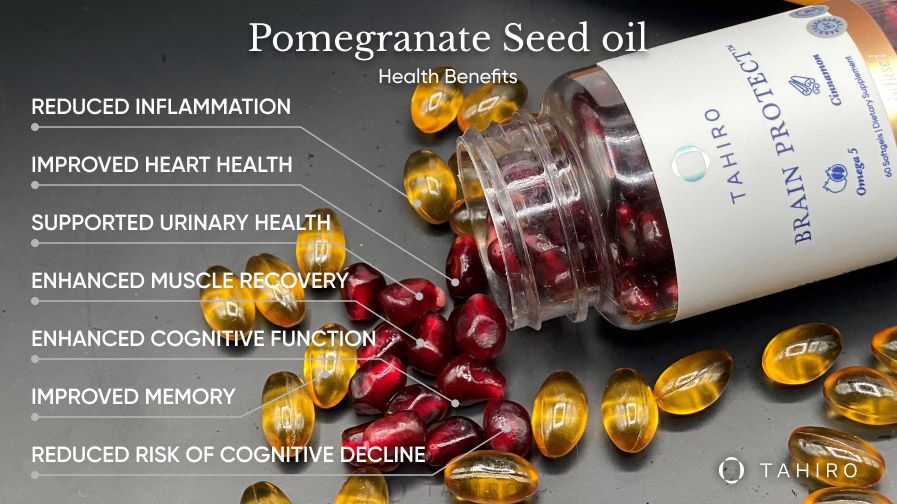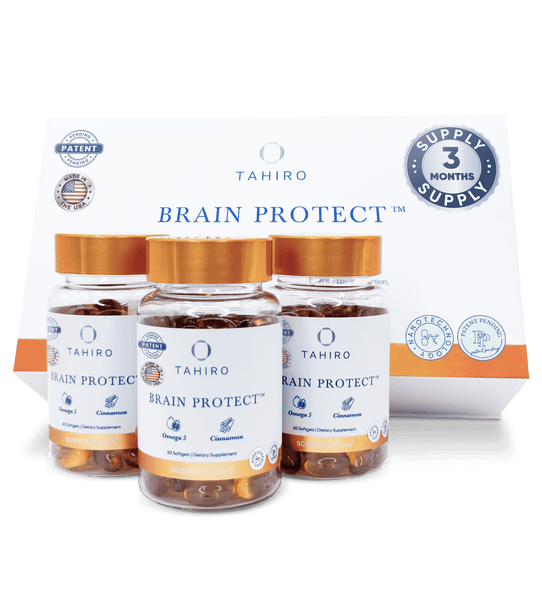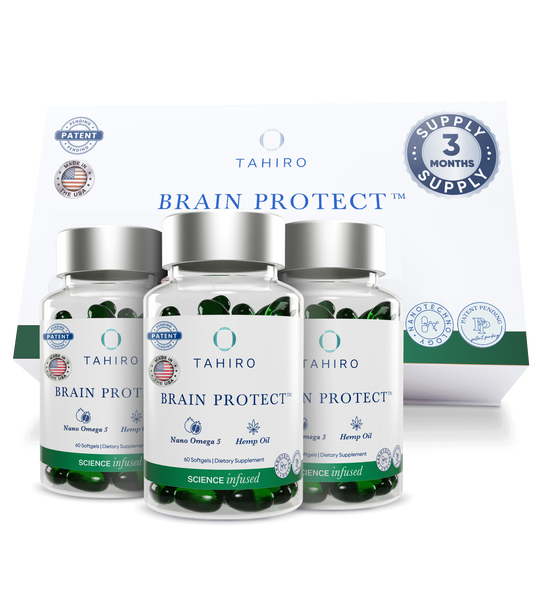According to research, more than 10 million people worldwide live with Parkinson’s disease (1). In the US, the numbers are still very high. It’s said that one million people have Parkinson’s, with the troubling statistics saying it can increase to 1.2 million by 2030.
Living with Parkinson’s can be exhausting for the family member and the rest of the family. While currently there is no cure for Parkinson’s, there are ways to help decrease the risk of Parkinson’s disease.
In this article, we will explore the potential of pomegranates in both preventing and managing the progression of Parkinson’s disease, while also delving into the various health benefits that pomegranates can provide
What Is Parkinson’s Disease?
Parkinson’s disease (2) is a brain disorder that causes uncontrollable or unintended movements. This may cause stiffness, shakiness, and difficulty with balance and coordination. In most cases, symptoms begin to gradually increase and worsen over time.
So, why does it happen?
It seems that Parkinson’s occurs when certain parts of the brain (nerve cells in the basal ganglia) die. These are nerves that control movement and are in charge of releasing dopamine. A reduction in dopamine can, therefore, lead to problems with movement.
Currently, it’s unknown what causes Parkinson’s to show up. There seem to be genetic and environmental factors. One influential factor seems to be oxidative stress (3). When there are too many free radicals, it can lead to oxidative stress, causing more inflammation and damage to essential organs.
So, including foods with a high antioxidant content may appear to help reduce the risk of Parkinson’s and, up to a certain extent, assist in managing the symptoms (4).
Health Benefits of Pomegranates
Pomegranates offer a wealth of health benefits due to their rich nutritional content. They are a source of essential nutrients such as magnesium, folate, vitamin C, and potassium. Additionally, pomegranates are abundant in antioxidants, including anthocyanins, punicalagin, and tannins.
Thanks to its wide range of nutrients, here are some potential health benefits pomegranates offer:
-
Reduced Inflammation: The antioxidants found in pomegranates can effectively reduce inflammation (5) by neutralizing free radicals. This reduction in inflammation may alleviate joint pain and lower the risk of chronic illnesses.
-
Improved Heart Health: Research (6) indicates that pomegranates may help reduce the frequency and severity of chest pain, benefiting heart health.
-
Supports Urinary Health: Pomegranates might contribute to a reduced risk of kidney stones (7) by potentially regulating the concentrations of oxalates, calcium, and phosphates.
-
Enhanced Exercise Endurance and Recovery: Pomegranate extract has shown promise in increasing time to exhaustion and aiding muscle recovery (8), which can enhance exercise performance.
-
Improved Gut Health: Evidence suggests that pomegranates may have a positive impact on gut health (9), potentially leading to improved digestion and a strengthened immune system.
In addition to the diverse health benefits mentioned earlier, pomegranates stand out for their potential to significantly improve cognitive function and overall brain health.

Can Pomegranates Have An Effect on Parkinson’s Disease?
One of the foremost advantages of pomegranates is their positive impact on brain function. Emerging evidence (10) indicates that pomegranates have the potential to not only reduce the symptoms of Parkinson's disease but also mitigate its effects.
Thanks to its antioxidant content, pomegranate can help reduce oxidative stress, less inflammation(11), improving cognitive function and brain health. Additionally, there is evidence suggesting that pomegranate may contribute to the reduction of dopamine depletion (12), which is a factor that can potentially exacerbate Parkinson's disease symptoms.
Should Pomegranate Supplements Be Taken To Treat Parkinson's?
Considering the numerous advantages of incorporating pomegranate into your diet, especially if you are concerned about Parkinson's disease or experiencing early symptoms, it's important to note that fresh pomegranates, while beneficial, come with calories and sugar, requiring moderation. For those seeking to reap the benefits of pomegranate without affecting their calorie intake and ensuring they meet the daily recommended dose, pomegranate supplements provide a convenient alternative.
However, the alternatives for such supplements are extremely limited due to specific reasons and facts.
Two primary challenges hinder the effective delivery of antioxidants to brain cells: the digestive tract and the blood-brain barrier (BBB). In the digestive tract, most minerals, fatty acids, and vitamins are lost before reaching their intended targets. Upon entering the bloodstream, these antioxidants face another formidable obstacle—the BBB—a network of tightly sealed blood vessels within the brain that restricts the passage of larger molecules. While this protective mechanism safeguards our brains, it inadvertently hampers the delivery of pomegranate supplements such as Omega 5, which could otherwise offer significant benefits.
To overcome these challenges, two years of dedicated research and development yielded a unique, one-of-a-kind product that demonstrated remarkable results.
Brain Protect™ Nano Omega 5: The future of Brain health
Brain Protect™ stands out from other products on the market by harnessing the remarkable power of Omega-5, a potent antioxidant found in pomegranates. This vital compound is renowned for its ability to reduce oxidative stress within the brain. In addition to this key ingredient, Brain Protect™ offers the choice of a second active ingredient, either cinnamon or hemp oil, each contributing its unique set of neuroprotective benefits to ensure optimal results.
“Tahiro developed something that had never been done before. Through the application of advanced science, cutting-edge nanotechnology, and a state-of-the-art delivery system, Brain Protect™ Nano Omega 5 is a world-class patent-pending formula that signifies a significant breakthrough in the realm of neuroprotection,” says Tahiro Co-Founder and Chief Scientist Professor Oded Shoseyov.
While certain aspects of this work have been independently used in the past, Tahiro's innovation combines them in a distinctive and pioneering manner, resulting in truly unique and groundbreaking results.
Dr. Ronit Shaltiel Karyo has dedicated years to researching CNS-related indications, with a particular emphasis on conditions like Alzheimer’s and Parkinson’s diseases, explains further: “Developing new medicines is a lengthy and highly regulated process, often taking a decade or more. While these rigorous standards are crucial for ensuring safety, it's also a reality that many promising drug candidates face challenges and may not make it to market.”
The two active ingredients in Brain Protect™ have been engineered into nano-sized tiny droplets, making them completely available to reach the intended biological destination – the brain. Utilizing nanotechnology in synergy with a unique delivery system enables them to better cross the BBB while retaining their essential properties.
Countless comprehensive clinical studies heavily support Brain Protect™ ingredients, but unlike other supplements, the product itself underwent rigorous testing both in the laboratory and through two separate pre-clinical tests on living organisms, demonstrating its ability to enhance cognitive function and potentially prevent cognitive decline.
Tahiro offers Brain Protect™ in two great options: Nano Omega-5 Hemp Oil and Nano Omega-5 Cinnamon.
Final Words
Pomegranates offer several health benefits. They can help reduce inflammation, improve heart health, support urinary function, enhance exercise, and improve gut health. In addition, pomegranates can help improve brain function.
Research shows that pomegranates can help reduce oxidative stress in the brain and increase dopamine production.
While more research is required, the evidence shows that Brain Protect™ has the ability to slow down brain degeneration, positioning itself as a potential player in the fight against preventing dementia, and related conditions like Alzheimer's and Parkinson's.







